Christoph Schlingensief: Bad-Tastemeister
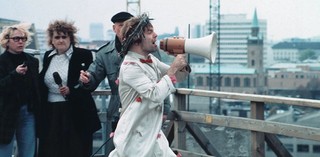
Production still from The 120 Days of Bottrop — The Last New German Film 1997 | Christoph Schlingensief | Image courtesy: Filmgalerie 451 / View full image
When
2 – 17 Dec 2011
Where
Gallery of Modern Art, Cinema A
About
The Gallery's Australian Cinémathèque presents a rare exhibition of films by the late German artist, actor, and film and theatre director Christoph Schlingensief (1960—2010), representative for the German Pavilion at the 2011 Venice Biennale and winner of the Golden Lion for Best National Participation. Described by filmmaker Herbert Achternbusch as "filth for intellectuals", Schlingensief's work combines excessive B-movie aesthetics with a critique of contemporary politics. He described his films as "Cinema direct", a label stemming from the Viennese Actionists notion of "Direct Art" and produced an aesthetic and DIY working methodology that tackled complex themes of nation, violence and Western materialism in a direct and immediate way. In particular, Schlingensief used his films to mobilise debates on the spread of far-right political parties across Europe, the politics of fear after the events of 9/11, and the legacy of the Third Reich in post-war Germany.
The Australian Cinémathèque program includes all of Schlingensief's feature films and a selection of his short films and documentaries, some subtitled in English for the first time. It includes the Australian premiere of the six new high-definition restorations presented at the 2011 Venice Biennale for Menu Total, Egomania, the Germany trilogy of 100 Years of Adolph Hitler, The German Chainsaw Massacre, and Terror 2000, as well as his penultimate film, United Trash; alongside the world premiere of three new restorations for his debut feature Tunguska, and rarely seen films Mother's Mask and The 120 Days of Bottrop.
Deutschlangtrilogie | German Trilogy
Christoph Schlingensielf's 'Deutschlangtrilogie/German Trilogy' 1989—1992 covers the period immediately prior to and post Germany's reunification in 1989 and the country in the process of coming to terms with both and the past and present in post-war Germany. The films deal with the legacy of the Third Reich; the difficulties faced by Germany in dealing with its National Socialist past; the end of the 1968 revolutionary movement following the violent excesses of the Red Army Faction (RAF); and the many challenges posed by the post 1989 reunification period. Schlingensielf's approach is direct – with the films explicitly revealing the hypocrisies, discriminatory practice and repressed violent tendencies that are masked by post-war Germany's desired vision of itself as a post-fascist liberal democracy.
The Australian Cinémathèque extends its sincere thanks to Frieder Schlaich and staff at Filmgalerie 451 for assisting the development and presentation of this program. Quotes sourced from Christoph Schlingensief: Art Without Borders (2010) by Tara Forrest and Anna Teresa Scheer (TF/ATS) and Reinventing the left: Radical responses to German reunification (2006) by David Ashley Hughes (DAH).
QAGOMA acknowledges all the archives, filmmakers and distributors who have generously provided screening materials for this program. In particular, the support of the National Film and Sound Archive Australia and Chinese-Taipei Film Archive. Program curated by José Da Silva, Australian Cinémathèque. Film notes are abridged; sources are indicated.
List of Works
- Mein 1. Film 1986
- Mensch Mami, wir drehn 'nen Film (Hey, Mum, Let's Shoot a Movie) 1977
- Für Elise 1982
- Wie würden Sie entscheiden? (How would you decide?) 1982
- Schlacht der Idioten (Idiots' Battle) 1986
- Tunguska — Die Kisten sind da! (The Crates Are Here!) 1986
- Menu Total 1986
- Egomania - Insel ohne Hoffnung (Island without Hope) 1986
- Mutters Maske (Mother's Mask) 1987-8
- 100 Jahre Adolf Hitler – Die letzte Stunde im Führerbunker (100 Years of Adolph Hitler – The Last Hour in the Führerbunker) 1989
- Das deutsche Kettensägen Massaker (The German Chainsaw Massacre: The First Hour of Reunification) 1990
- Terror 2000 - Intensivstation Deutschland (Germany out of control) 1994 Ages 18+
- United Trash – Die Spalte (The Slit) 1995—6
- Die 120 Tage von Bottrop — Der letzte neue deutsche Film (The 120 Days of Bottrop — The Last New German Film) 1997
- Freakstars 3000 2003
- The African Twin Towers 2008
Past
-
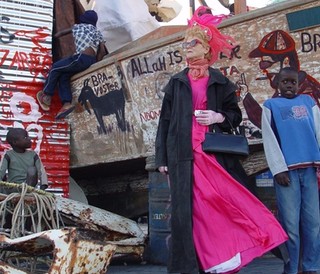
The African Twin Towers 2008 Ages 18+
- When 7.30 pm, Wed 21 Dec 2011 (79 mins)
- Where GOMA
-
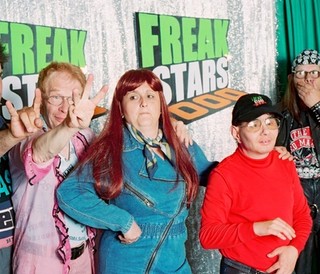
Freakstars 3000 2003 Ages 18+
- When 3.30 pm, Sat 17 Dec 2011 (75 mins)
- Where GOMA
-
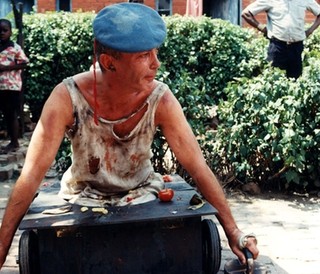
United Trash – Die Spalte (The Slit) 1995 Ages 18+
- When 9.00 pm, Fri 16 Dec 2011 (75 mins)
- Where GOMA
-
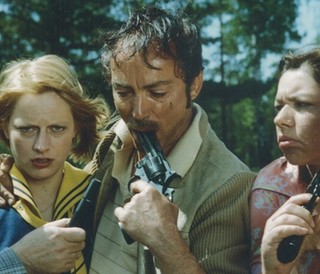
Terror 2000 - Intensivstation Deutschland (Germany out of control) 1994 Ages 18+
- When 7.30 pm, Fri 16 Dec 2011 (79 mins)
- Where GOMA
-
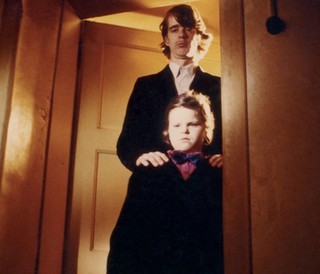
Mutters Maske (Mother’s Mask) 1987 Ages 18+
- When 8.00 pm, Wed 14 Dec 2011 (85 mins)
- Where GOMA
-
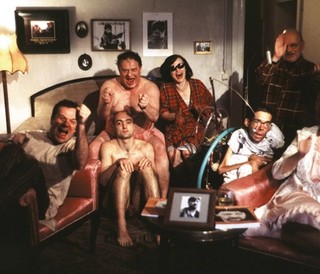
Die 120 Tage von Bottrop — Der letzte neue deutsche Film (The 120 Days of Bottrop — The Last New German Film) 1997 Ages 18+
- When 9.00 pm, Fri 9 Dec 2011 (60 mins)
- Where GOMA
-
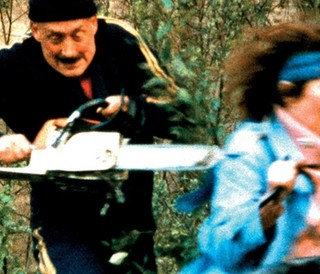
Das deutsche Kettensägen Massaker (The German Chainsaw Massacre: The First Hour of Reunification) 1990 Ages 18+
- When 8.00 pm, Fri 9 Dec 2011 (60 mins)
- Where GOMA
-
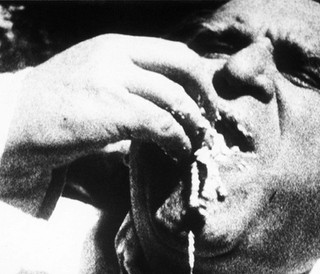
Menu Total 1986 Ages 18+
- When 8.30 pm, Wed 7 Dec 2011 (81 mins)
- Where GOMA
-
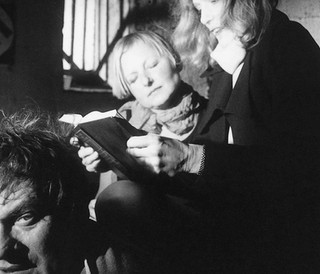
100 Jahre Adolf Hitler – Die letzte Stunde im Führerbunker (100 Years of Adolph Hitler – The Last Hour in the Führerbunker) 1989 Ages 18+
- When 7.30 pm, Wed 7 Dec 2011 (55 mins)
-
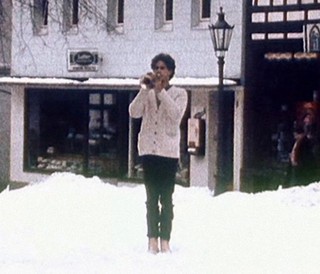
Christoph Schlingensief Early Short Films 1977 Ages 18+
- When 1.00 pm, Sun 4 Dec 2011 (60 mins)
- Where GOMA
-

Egomania - Insel ohne Hoffnung (Island without Hope) 1986 Ages 18+
- When 3.45 am, Sat 3 Dec 2011 (804 mins)
- Where GOMA
-

Tunguska — Die Kisten sind da! (The Crates Are Here!) 1986 Ages 18+
- When 2.00 pm, Sat 3 Dec 2011 (92 mins)
- Where GOMA

